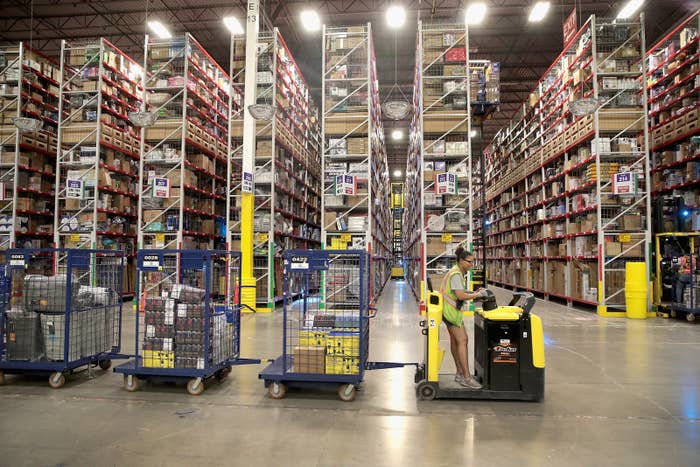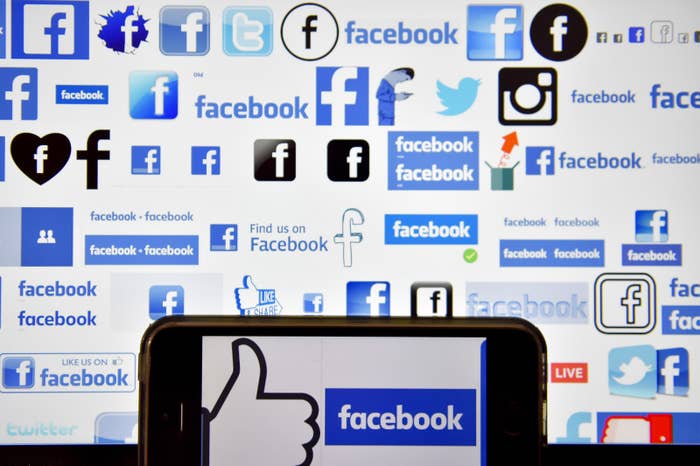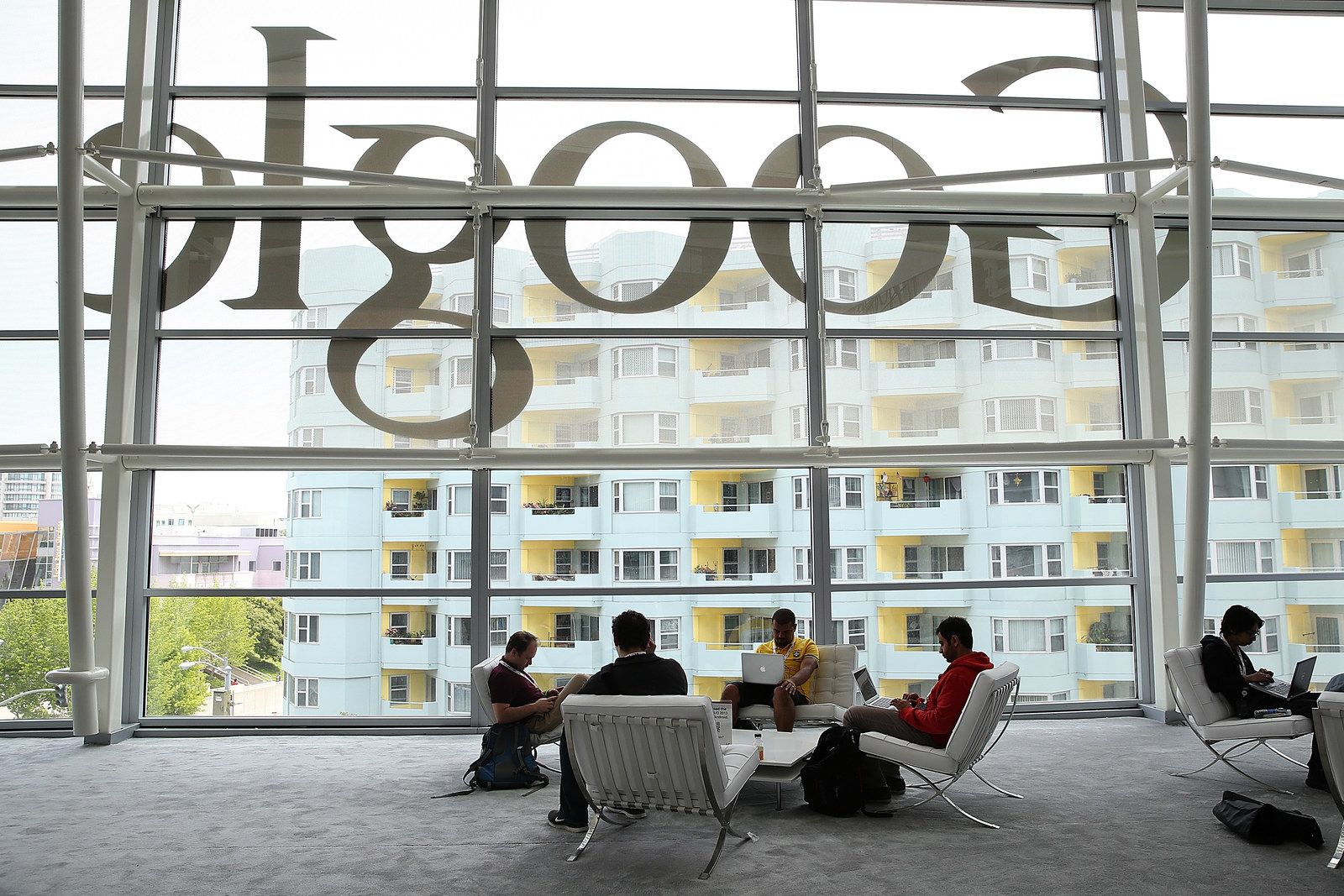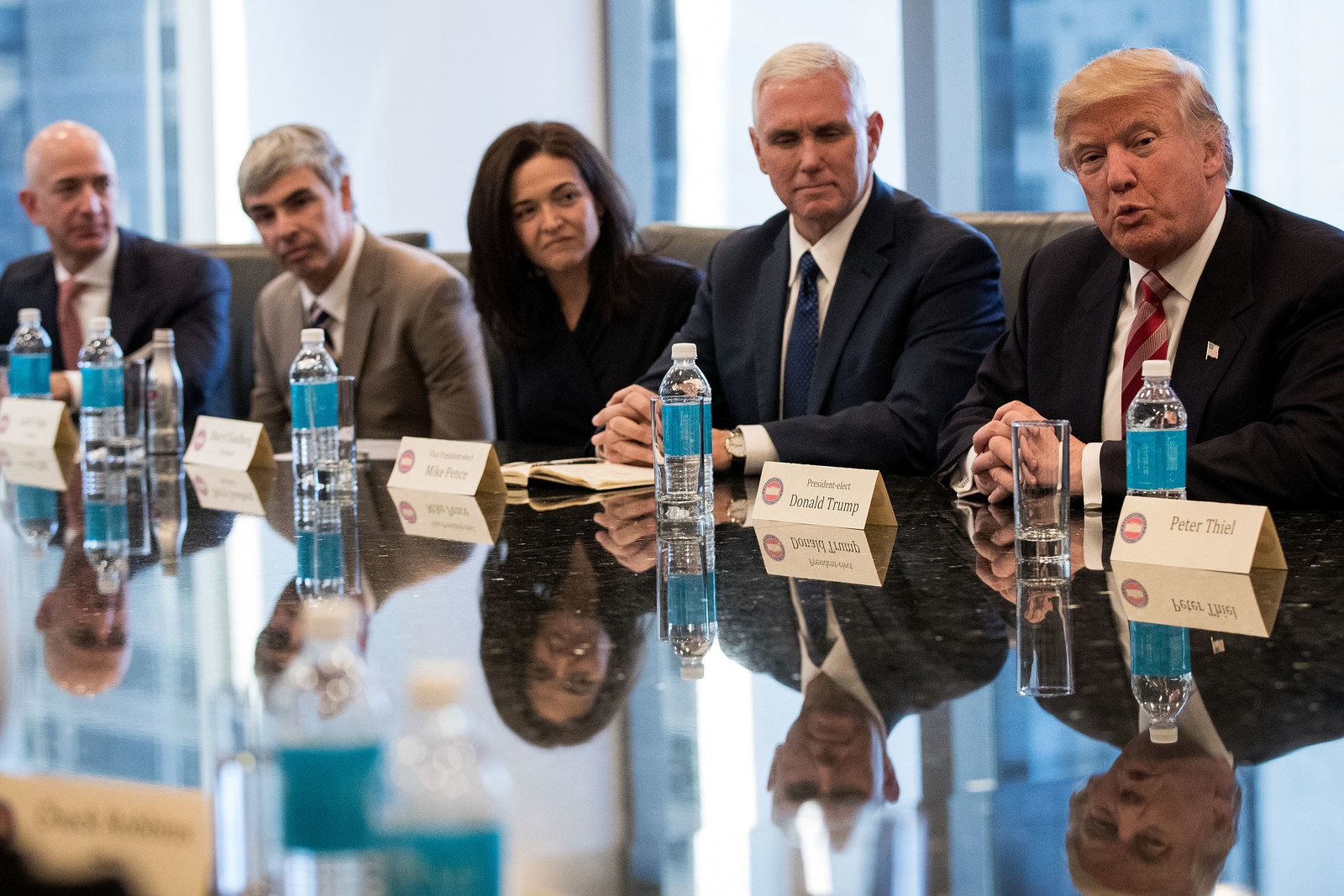
The economic and social problems caused by the exceptional unchecked power of three companies — Google, Amazon, and Facebook — has created a rare bipartisan opportunity for the right and left to come together around common interests: holding abuses of unaccountable power accountable.
As both conservatives and progressives have learned through experience, these hyper-concentrated market and political powers can effectively censor, exclude, or ban people or entities at any time, for any reason — and without any explanation, due process, or real recourse.
Conservatives understand how unchecked online hyper-power can threaten individual liberty with tyranny: Facebook wields its social power to censor news and filter unacceptable opinions; Google denies advertising to conservatives with which it disagrees; and Amazon ignores pirated goods sold on its marketplace to force the rightful owner of the product to distribute its goods on Amazon on Amazon’s terms, to protect its brand, property, and business.
Progressives understand how automated autocracy can threaten participatory democracy: Google recently threatened the New America Foundation’s funding to force it to fire Barry Lynn and its anti-monopoly researchers for supporting the EU’s $3 billion fine against Google; Facebook and Google have sparked widespread outrage as the prime purveyors of selling highly profitable fake news in last year’s election cycle; and Amazon is seen unfairly undermining competition, and threatening jobs and communities.
Where real bipartisan interests can converge is around holding these corporations accountable.
Just like government needs the competitive rivalry of separation of powers and an adversarial process of justice to keep it honest and working for Americans’ interests, the market needs competition and the backstop of the adversarial antitrust process to keep it honest and working for consumers’ interests.
At its core, this is not a business or government problem, but a human nature problem; power corrupts and absolute power corrupts absolutely. Ensuring that hyper-concentrations of power are kept in check unites both the right and left.

Although politically divided, Americans agree that all of us should play by the same rules and no one is above the law. Therefore, antitrust changes that hold the nation’s largest online companies accountable, with a focus on economic growth and fair competition, are bound to garner broad, bipartisan support.
Amazon, Google, and Facebook have leveraged their online intermediary or broker functions to become winner-take-all gatekeepers for consumers seeking to reach companies, and toll-keepers for companies seeking to sell to consumers online.
Since these three companies are in the process of aggregating and monopolizing most mass media via the internet by inserting themselves in the middle of almost all online activities, and since the government has granted online intermediaries special immunity from liability for what happens on their platforms, these companies warrant a new moniker: the intermedia.
The intermedia have become dominant market bottlenecks for their distinct functions: e-commerce, information access, and social sharing. Most supply and demand in the economy must now pass through them to interact and to conduct business.
The intermedia have become so dominant so quickly because outdated government rules have created an unfair playing field favoring the winner-take-all online platforms over the rest of the economy.
Special government immunities, regulatory loopholes put in place to support the ancient bulletin board internet, and a near total pass by antitrust enforcers, have enabled the intermedia to unfairly skim most of the revenue growth, value creation, data, and customer interaction from the rest of the economy.
This is not a free market, but a favored market.
Together Amazon, Google, and Facebook — which do not compete directly with each other in their core businesses — effectively divert much of the offline economy’s activities onto their dominant platforms.
When this economic activity comes out on the other side of these bottleneck platforms, it overwhelmingly benefits the intermedia and costs the dwindling competition by deflating pricing, depressing revenues, and devaluing brands, products, services, and property.

Together the intermedia have become a new bottleneck economy that is unfairly choking overall economic growth. For those struggling to understand why the economy and productivity has so stubbornly lagged behind expectations over the last decade, consider the following facts:
What is the most concentrated part of the economy? The internet by far.
Public data shows that the percent of total revenue in the online economy taken by its three largest companies — Amazon, Google, and Facebook — is eight times higher than the percent of offline economy revenues taken by its three largest companies — Walmart, Berkshire Hathaway, and Apple.
How tight is the intermedia’s chokehold on US commercial activity?
For companies seeking to reach the online mass market audience, they must advertise through Google and Facebook’s digital advertising cartel, where Google is monopolizing search for consumers and search advertising for companies with a roughly 90% market share of all mobile searches, and Facebook is monopolizing social sharing for consumers and social media advertising for businesses with a roughly 90% market share.
Since 2014, when Google and Facebook stopped directly competing against each other in their core businesses, the two companies have been taking an ever bigger share of digital advertising revenue growth, reaching 96% as of last quarter's earnings numbers.
For companies seeking to sell their products to the online mass market, they increasingly must accept Amazon’s terms to sell through its increasingly dominant “Marketplace” e-commerce distribution platform. Amazon is evidently in the process of monopolizing the e-commerce distribution market, with its 80 million Amazon Prime subscribers in the US representing a more than 80% share of online e-commerce buying power.
What effect is the intermedia’s chokehold having on economic growth?
From 2012 to 2016, US GDP grew 25 times faster than Fortune 500 companies’ revenues: 9% versus 0.3%, according to the U.S. Bureau of Economic Analysis and Fortune 500 figures.
Tellingly, during that same period, Amazon, Google, and Facebook grew revenues over 300 times faster than Fortune 500 companies in total: 118% versus 0.3%.
If one takes Amazon, Google, and Facebook revenues out of the Fortune 500 total, the remaining 497 companies’ revenues actually declined by 0.81% over the last four years.
It is no coincidence that from 2012 to 2016, Amazon, Google and Facebook’s revenues increased by $137 billion and the remaining Fortune 497 revenues contracted by $97 billion.
If this economic contraction is ailing the biggest companies in America, imagine how much worse it is for the millions of small and medium businesses throughout Middle America that do not have the resources to cope with it.
And consider for a moment if the revenue growth divide over the last four years continues for four more years.
Amazon, Google, and Facebook’s revenues would grow by $272 billion, and the remaining 497 companies in the Fortune 500 would see revenues contract by $232 billion, or –2%, by 2020. Overall, small and medium business revenues would likely contract similarly.
That would be an offline economy recession.
Since Fortune 500 revenues represent about 65% of US GDP per the Fortune 500, and since the offline economy generates over 95% of all job creation, the intermedia’s chokehold on America’s economy is becoming an increasingly big bipartisan problem that is worsening fast.
It is only a matter of time until there will be strong bipartisan attention to, and eventual bipartisan support for, antitrust reform that corrects the unwarranted, unfair, and anti-competitive special lax antitrust enforcement that the intermedia have enjoyed for the last decade.
Legacy government policies strongly advantage Amazon, Google, and Facebook, to the direct disadvantage of the rest of the American economy, which creates over 95% of existing and new jobs and pays over 95% of America’s taxes.
Bipartisan interest in resolving the intermedia economic bottleneck problem will ripen, because neither party, and neither end of the political spectrum, will want to tell over 95% of voters across America that they must suffer through effective economic recession so their government can continue to favor the most powerful, least accountable, and most entitled corporations in America — the intermedia — with special treatment and unfair competitive advantages.

Another driver of bipartisan support for antitrust reform will be the strong American consensus around basic fairness.
There is a growing and widespread appreciation that the intermedia increasingly operate their companies like kings without any accountability — autocrats that apparently consider themselves special, above the rules and outside the law, because consumers so broadly love their products.
But in America, no one is king. There is longstanding and broad bipartisan support for the proven wisdom of separation of powers in government. Americans understand human nature, and know that reasonable checks and balances are necessary to make sure those who wield immense power follow the rules.
There is no bipartisan consensus to protect Amazon, Google, and Facebook from the accountability and responsibility expected of every other company and person in America.
That is especially true when one thinks about what can and does go wrong when unaccountable and nontransparent intermediaries can freely interfere with competition and market forces; intercept private communications, inside information, and trade secrets; inject biases, discrimination, and self-dealing; influence mass choices, behaviors, views, and cultural norms; and intervene whenever they want as self-appointed censor, arbiter, and regulator.
For those who have healthy skepticism of the potential bipartisan consensus on this issue, consider the cross-party coalition currently at work in the Senate to pass the Stop Enabling Sex Traffickers Act of 2017. The act aims “to ensure justice for victims of sex trafficking and ensure that websites such as Backpage.com, which knowingly facilitate sex trafficking, can be held liable and brought to justice.”
Google, Amazon, Facebook, and their DC lobbying group, the Internet Association, strongly oppose this legislation because “the bill jeopardizes bedrock principles of a free and open internet, with serious economic and speech implications well beyond its intended scope.”
Democratic Sen. Claire McCaskill from Missouri explained her sponsorship of this legislation: “what this bipartisan bill is all about is … making clear to any company considering going into business with sexual predators, that the law won’t protect them from responsibility.”
How bipartisan the Senate floor vote is this month, and how its companion House legislation fares this fall, could be good early indicators for the potential for bipartisan antitrust reform for the intermedia.
In sum, times have changed. Sentiment has changed. There is a big evident spike in bipartisan interest in this fundamental problem.
The prospects for bipartisan antitrust reform are increasing because the current unfair playing field is depressing economic growth and the bottleneck market power of Amazon, Google, and Facebook is unaccountable to competition and antitrust enforcement.
No one in America should be above the rules or outside the law.
The best solution is a bipartisan restoration of a fair playing field: same consumers, same rules, same enforcement.
Outside Your Bubble is a BuzzFeed News effort to bring you a diversity of thought and opinion from around the internet. If you don't see your viewpoint represented, contact the curator at bubble@buzzfeed.com. Click here for more on Outside Your Bubble.
